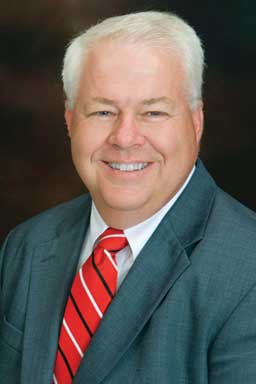I recently had the opportunity to attend the dedication service for an agricultural education facility at the high school that I graduated from in 1977. The facility was dedicated to the two agricultural education teachers that taught there for many years. They were both mentors for me as a young high school student trying to decide upon a career course.
What impressed me the most was the group of young FFA members who conducted the ceremony, and the skills they exhibited as young leaders. The motto also brought back to me the mission of this organization, the Future Farmers of America. Certainly this organization has developed many of the leaders of this country both in agriculture and beyond. The principles they instill in these young people serves them well as they go forward in life.
The FFA motto is also one that most professionals can identify with as they look back on how their careers have developed. Learning is a big part of any career that a person chooses. This includes the skills and the knowledge needed to become veterinarians. Most veterinarians are in fact lifelong learners and continue to seek new information and ideas that will make them and their clients more successful. They invest a great deal of time and money into continuing education and the organizations that provide that education.
As any new graduate veterinarian will tell you, a lot of the learning is actually in doing the procedures and skills that are taught in school. There is, however, no better teacher than experience. Having an experienced practitioner to mentor young veterinarians through these times of learning is very helpful. Members of the AASV have certainly been leaders in this area over the years.
Earning to live is also a necessity of life. Most veterinarians work long hours to build their practices into successful businesses. Charging for our services is a part of practice that most veterinarians find difficult. This was borne out in the survey done by the AVMA several years ago. Many students now graduate with considerable debt and no doubt need to be successful financially to pay off their debt and have a life beyond that. The AASV is currently conducting a salary survey to determine the economics of swine practice and give the practitioner as well as prospective students insight into the economic return on the practice of swine medicine.
The last line of the FFA motto is no doubt the one statement that describes what most veterinarians do beyond practice and no doubt defines each of them as a person. Whether you serve the veterinary profession as a leader of some other organization, do work with civic organizations within the community in which you live, or serve the church and religion of your choosing, it is this service that makes you a better person. We all look around and sometimes wonder how, in the middle of practicing veterinary medicine and raising a family, can we possibly have time to coach a youth sport team, be a member of the Rotary, or volunteer at a local soup kitchen. But it is these experiences that are usually the most satisfying to us in retrospect.
As you can see, these 12 short words that make up the FFA motto are indeed a powerful message for a young high school student who is trying figure out what career path to choose and how to become a relevant part of the profession that is chosen. I am thankful to organizations like the FFA for developing young people with an interest in agriculture, but also developing an interest in agriculture in individuals who do not come from a farm background. But I am also thankful to the people who serve those organizations, like Brooks Piercy and Carl Debrew, people who make a difference in lives of young people and to society in general. We as a country need more of these people and not fewer. Yet many school systems are eliminating vocational education from their curriculums. I am glad to see that this school is not only maintaining their program but expanding it to include an actual working farm to help introduce to agriculture kids who would otherwise not have this opportunity. This then exposes these students to an organization that will develop leadership skills and citizenship skills that will benefit them and society in the future.
-- Randy Jones, DVM

